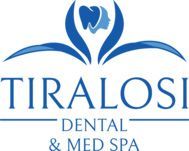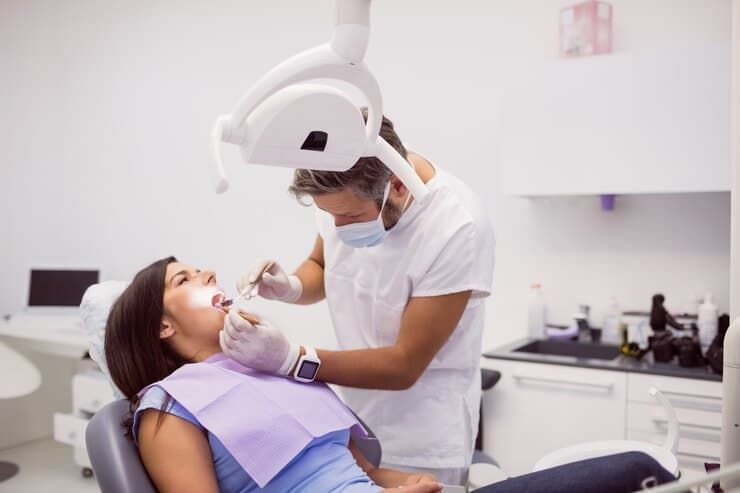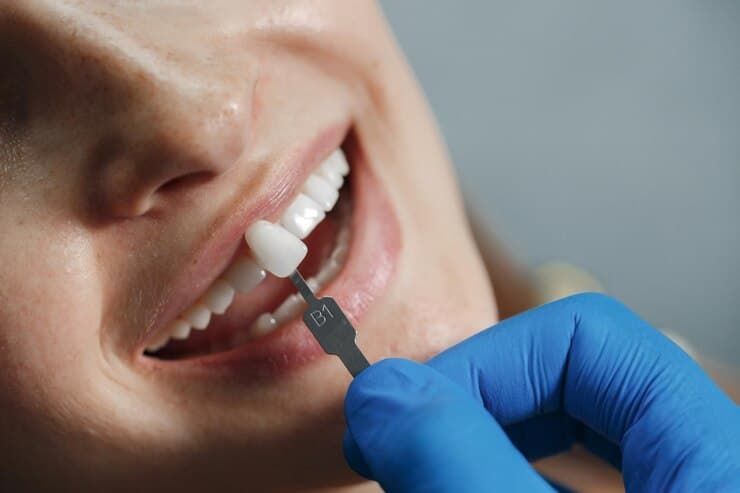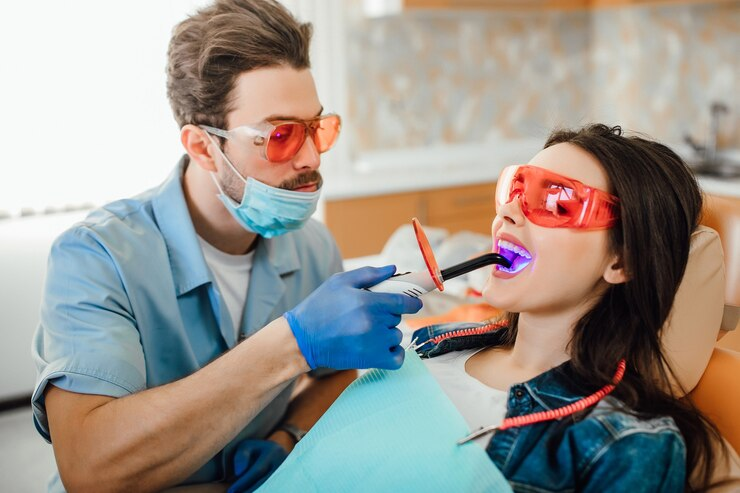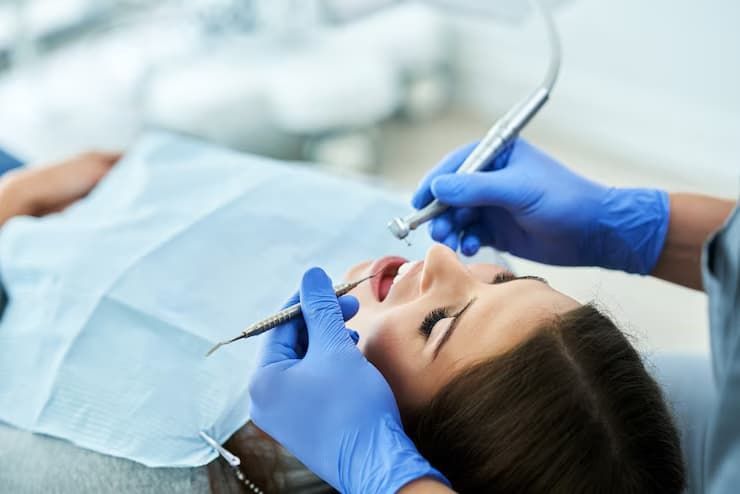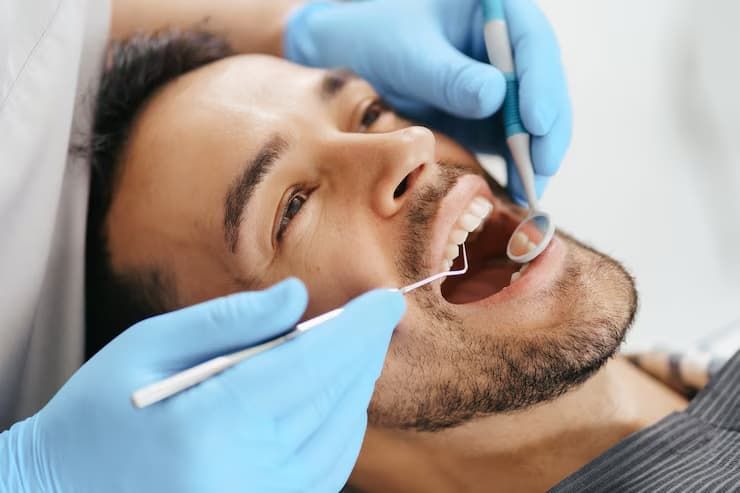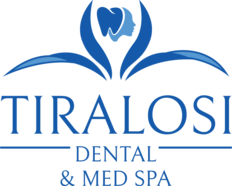What to Eat After Dental Implant Surgery? | Tiralosi Dental & Med Spa
Foods to Eat After Dental Implant Surgery
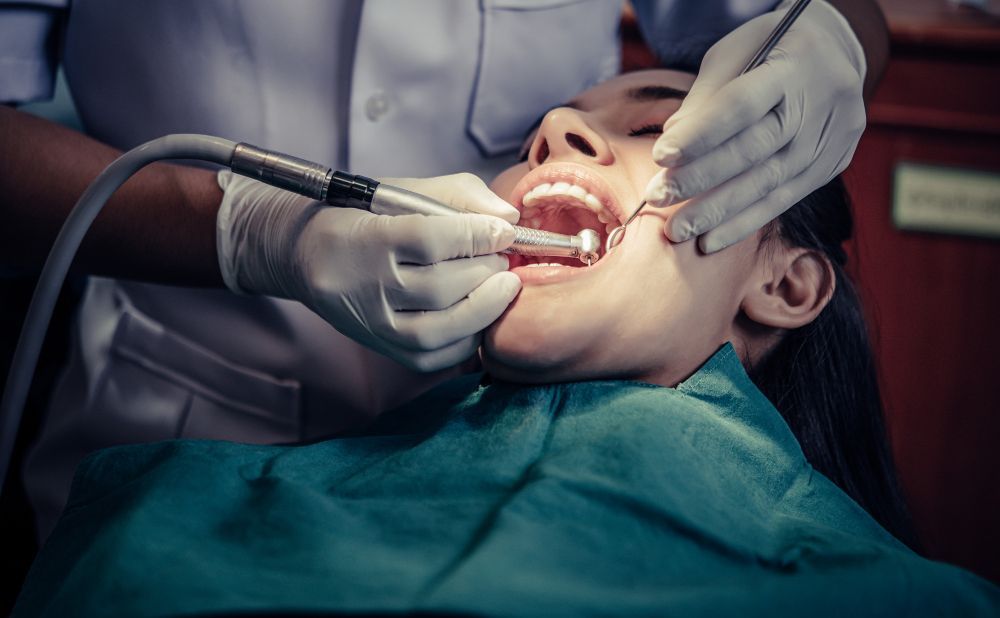
Introduction
Are you considering getting
dental implants, or have recently undergone dental implant surgery, and are wondering what you can eat after the procedure? Considering dental implant surgery is a fairly major operation, the recovery afterward is usually no easy walk in the park. However, there are a few steps you can take to make sure your post-operative recovery goes as smoothly as possible!
What are Dental Implants?
Dental implants are artificial tooth roots that are surgically placed into the jawbone to support replacement teeth or dental prosthetics. They provide a strong and stable foundation for fixed or removable dental restorations, such as
crowns, bridges, or dentures. Dental implants are typically made of titanium, a biocompatible material that fuses with the jawbone through a process called osseointegration.
How do Dental Implants Work?
During oral surgery, a dentist inserts a dental implant into your jaw. Your dentist can attach a crown to the implant after it has healed. Your
dentist Lake Mary can restore your implants with crowns, bridges, or dentures depending on your oral health objectives.
Who Might need Dental Implants?
People who have one or more missing teeth can benefit from dental implants. You might need a dental implant if you have tooth loss due to:
- Cavities (tooth decay).
- Tooth root fracture.
- Bruxism (clenching or grinding your teeth).
- Gum disease.
- Facial injury.
- Congenitally missing teeth (you were born without certain teeth).
What to Eat After Dental Implant Surgery?
After dental implant surgery, it's crucial to follow a post-operative diet that promotes healing and minimizes discomfort. Here are some recommendations on what to eat during the initial stages of recovery:
1. Stick to Soft Foods: In the first few days following surgery, opt for soft foods that require minimal chewing. This helps prevent irritation and potential damage to the surgical site. Examples of soft foods include:
- Soups: Choose broths, pureed soups, or cream-based soups that are lukewarm or at room temperature.
- Smoothies: Blend fruits, vegetables, yogurt, and milk or water to create nutritious and easy-to-consume smoothies.
- Mashed Potatoes: Enjoy smooth and creamy mashed potatoes without any added spices or hard pieces.
- Yogurt: Select plain and unsweetened yogurt, which provides protein and probiotics for optimal healing.
2. Protein-rich Foods: Protein is essential for tissue repair and recovery. Incorporate soft protein-rich foods into your diet, such as:
- Scrambled Eggs: Prepare soft and well-cooked scrambled eggs for a good source of protein.
- Cottage Cheese: Opt for the soft and creamy texture of cottage cheese, which is high in protein.
- Silken Tofu: Blend silken tofu into smoothies or mash it for a protein-packed alternative.
- Smooth Nut Butters: Enjoy smooth and unsalted nut butter, like peanut or almond butter, for added protein and healthy fats.
3. Nutrient-dense Fruits and Vegetables: Although chewing may be limited initially, you can still benefit from the vitamins and minerals found in fruits and vegetables. Ensure they are soft and easy to consume, such as:
- Cooked Vegetables: Steam or boil vegetables like carrots, broccoli, or zucchini until they are tender.
- Applesauce: Opt for unsweetened applesauce, which provides fiber and vitamins while being gentle on the surgical area.
- Avocado: Mash ripe avocado and spread it on soft bread or enjoy it as a dip for added nutrients.
- Banana: Enjoy the soft texture and natural sweetness of bananas, which are a good source of potassium.
4. Hydration is Key: Drink plenty of water to stay hydrated throughout the recovery process. Avoid using a straw, as the suction motion can disrupt the healing process. Sip water frequently and aim to keep your mouth moist to prevent dryness and discomfort.
Remember to follow your
implant dentist's specific dietary instructions and gradually reintroduce solid foods as your healing progresses. Proper nutrition and a balanced diet will help support the healing process and promote the long-term success of your dental implants. For more information, contact the recovery instructions provided to you by
Dr. Tim Tiralosi after your appointment.
Foods to Avoid with Dental Implants
There are definitely some foods you’ll want to avoid after your dental implant surgery, including the following:
- Hard foods: Don’t chew on nuts, ice, hard candy, or other such hard foods, as this could damage your implant.
- Crunchy foods: You should avoid crunchy foods like chips and popcorn to make sure you heal quickly.
- Tough & chewy foods: Very tough, chewy foods like jerky, steak, and raw vegetables are not usually a good choice after surgery.
- Spicy foods: Very spicy foods will irritate your surgical site and cause pain and discomfort. Avoid these foods until your mouth has healed.
- Sticky foods: Sticky foods like caramel and taffy require a lot of chewing, and can stick to your implant and the surgical site, increasing the risk of an infection.
What are the Benefits of Dental Implants?
Dental implants offer several benefits for individuals who have missing teeth or are in need of tooth replacement. Here are some of the key advantages of dental implants:
- Improve your speaking and eating abilities.
- Improve the look of your grin.
- Secure bridges and dentures, whether permanent or removable.
- Replace your teeth without modifying (shaving down) your neighboring teeth. (This is required for dental bridges.)
- Furthermore, dental implants cannot develop cavities. (However, they are not immune to gum disease, so excellent oral hygiene is still required.)
How Long Do Dental Implants Last?
Dental implants are now the most long-lasting tooth replacement option available. They can last a lifetime if properly cared for and maintained. The
implant restoration on top of your tooth implant, on the other hand, will need to be replaced at some point. Most crowns and bridges have a lifespan of about 15 years, and most dentures have a lifespan of at least seven years, however this varies.
Interested in Dental Implants? See if You’re a Good Candidate!
Proper nutrition is crucial for a successful recovery after dental implant surgery. Remember to avoid hard and crunchy foods, spicy and acidic foods, hot foods and beverages, as well as alcohol and tobacco products. Instead, focus on consuming soft foods, protein-rich foods, nutrient-dense fruits and vegetables, whole grains, and dairy products.
Dental implants are the best way to restore your missing teeth permanently. If you’re interested in replacing one or more missing teeth in Lake Mary and nearby areas. Contact us online or call
Lake Mary Dentist at
(407)333-1335
to
schedule a consultation today, and to see if implants are right for you.

